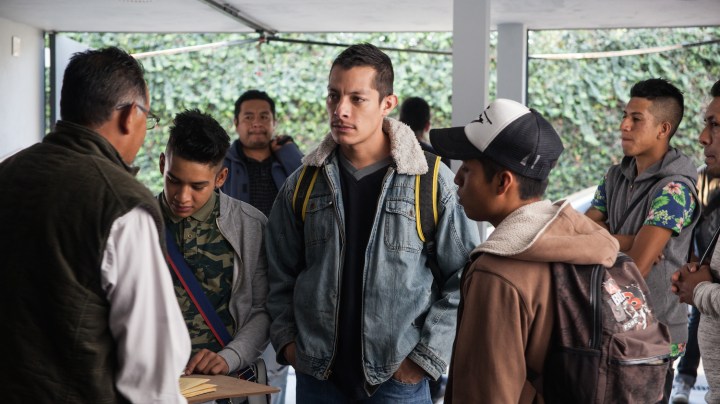In This Mexican Drama, Construction Workers Take Over Their Boss’s House

Courtesy of Los Cabos International Film Festival
Latin American history is riddled with soured revolutions. With stories of how radical promises of social change fall prey to the corrupting lure of power. Rather than try to recreate one in particular, Mexican filmmaker David Zonana sought to make instead a modern-day fable that could speak to any one of them. The result is Mano de obra (Workforce), a contemporary look at how social inequality drives a construction worker to take justice into his own hands. When a young man falls to his death while on the job, his brother and co-worker Francisco (Rosario Tijeras’ Luis Alberti) takes it upon himself to demand their boss, who’s been stiffing the titular workforce out of wages even as they put the finishing touches on his luxurious two-story house, pay out the insurance and care for his pregnant sister-in-law. But when a shady report suggests Francisco’s brother had been drinking on the job, the tensions between employees and employer boil over, leading to a shocking twist that sets up a chance to dream up a new world for its working-class characters.
With its static shots and its lived-in performances, it’s no surprise to find that Zonana gathered together a mostly nonprofessional cast. It’s what lends Mano de obra its true-to-life feel. This was, as Zonana shared following a screening of the film at the Los Cabos International Film Festival, by design. “Little by little we had to find a group of guys who had experience in the construction world and who would obviously had no previous acting experience. The initial challenge was in gaining their trust which was hard because they couldn’t imagine why anyone would be doing this kind of casting in their neighborhood of Jalalpa. From there on we started working together and getting to know one another better, and building strong bonds, friendships, really.”
But if finding the right nonprofessional ensemble posed a welcome hurdle, that didn’t compare to the main challenge of finding the house where much of the action takes place. As Dario Yazbek Bernal – who serves as a producer on the film – shared, he and Zonana scoured over 30 different locations before landing on the minimalist house that plays backdrop to the film. “We wondered a lot of whether we wanted something that was still in construction or not. Because the idea was that we could play with this sense of contrast. That every time you see this house you’d get to reflect a bit about what’s going on with the character of Francisco.” Thus, while we first see the house in its pristine, lily-white and barren conditions — a departure from the cluttered, cramped if colorful houses where the workers live — it slowly changes as the film goes on, the more it stops being neutral ground and starts being taken over by the very people who helped build it. Only, in keeping with the epic tragedies Mano de obra evokes, such utopian aspirations will be as fallible as the men that dream them.
This conversation has been translated from Spanish by the author for Remezcla.
Mano de obra screened as part of Los Cabos International Film Festival.